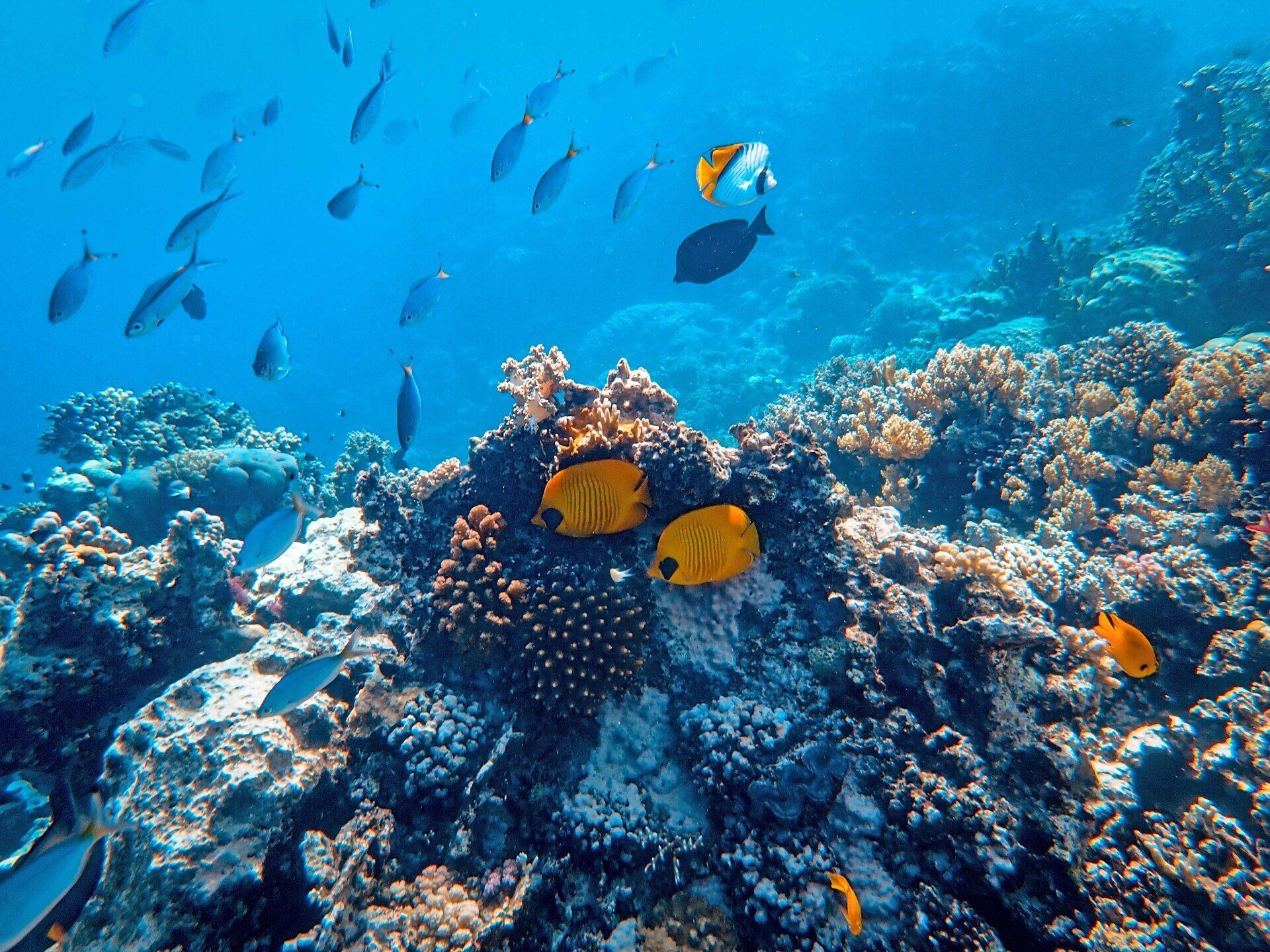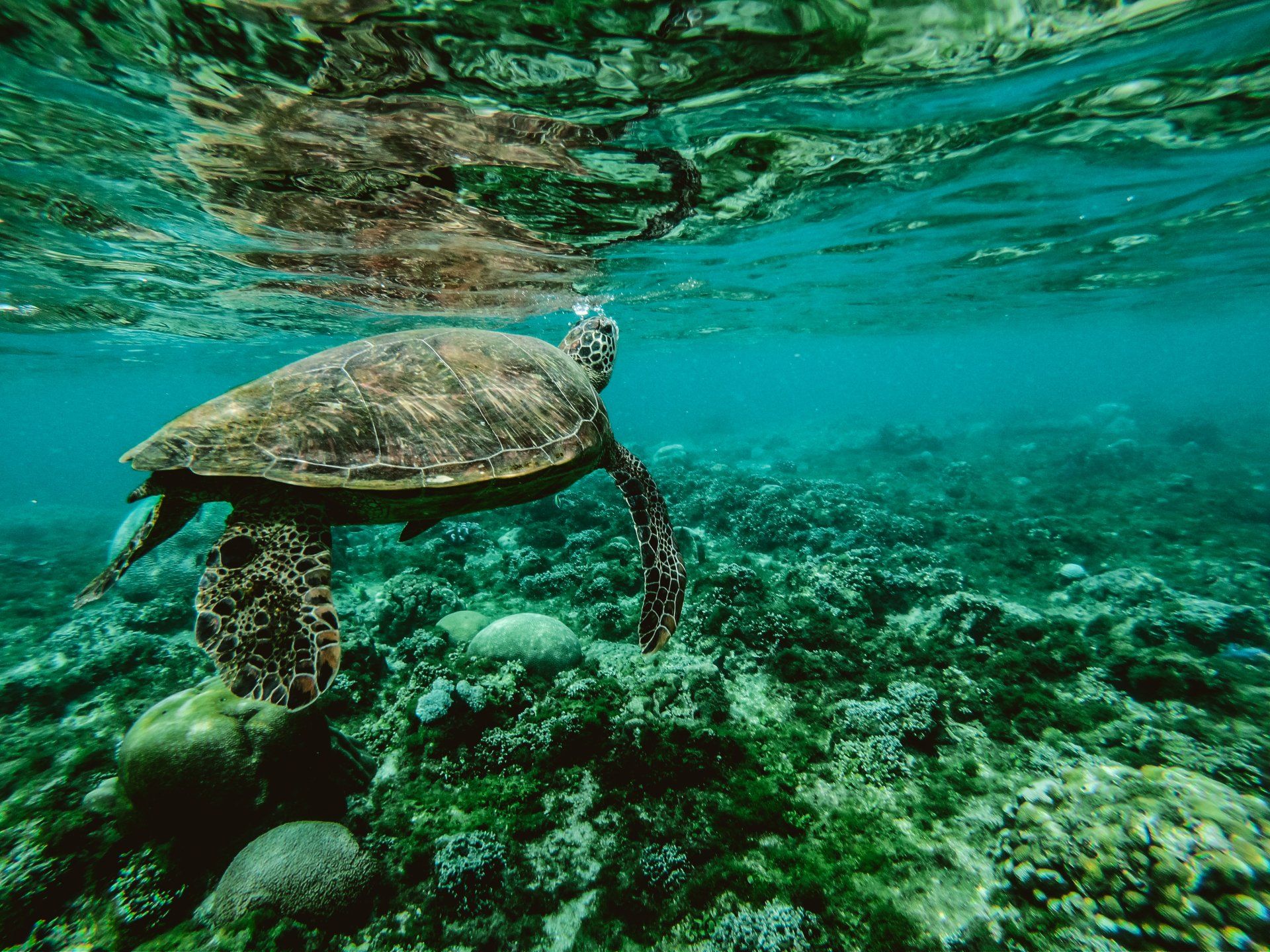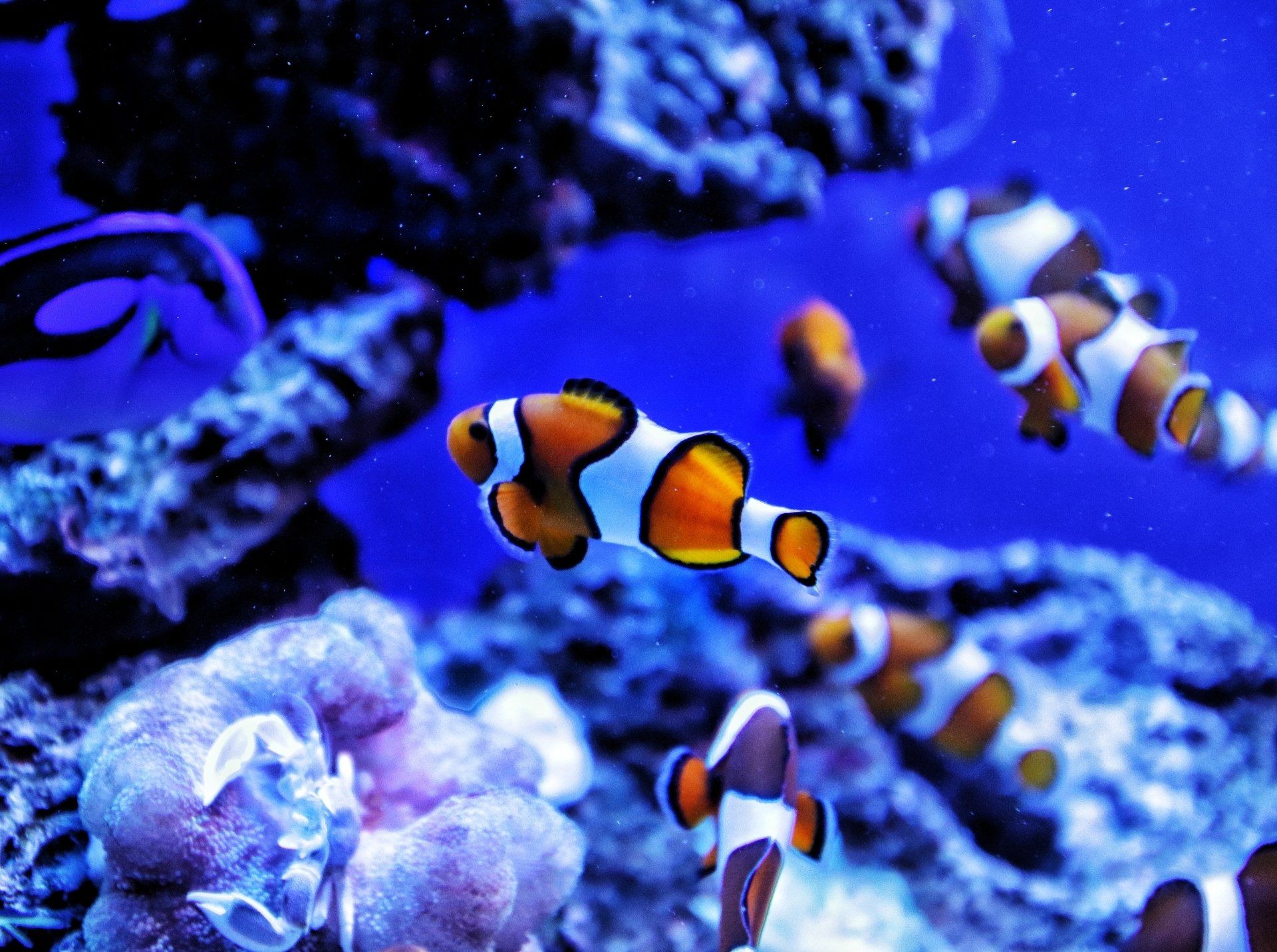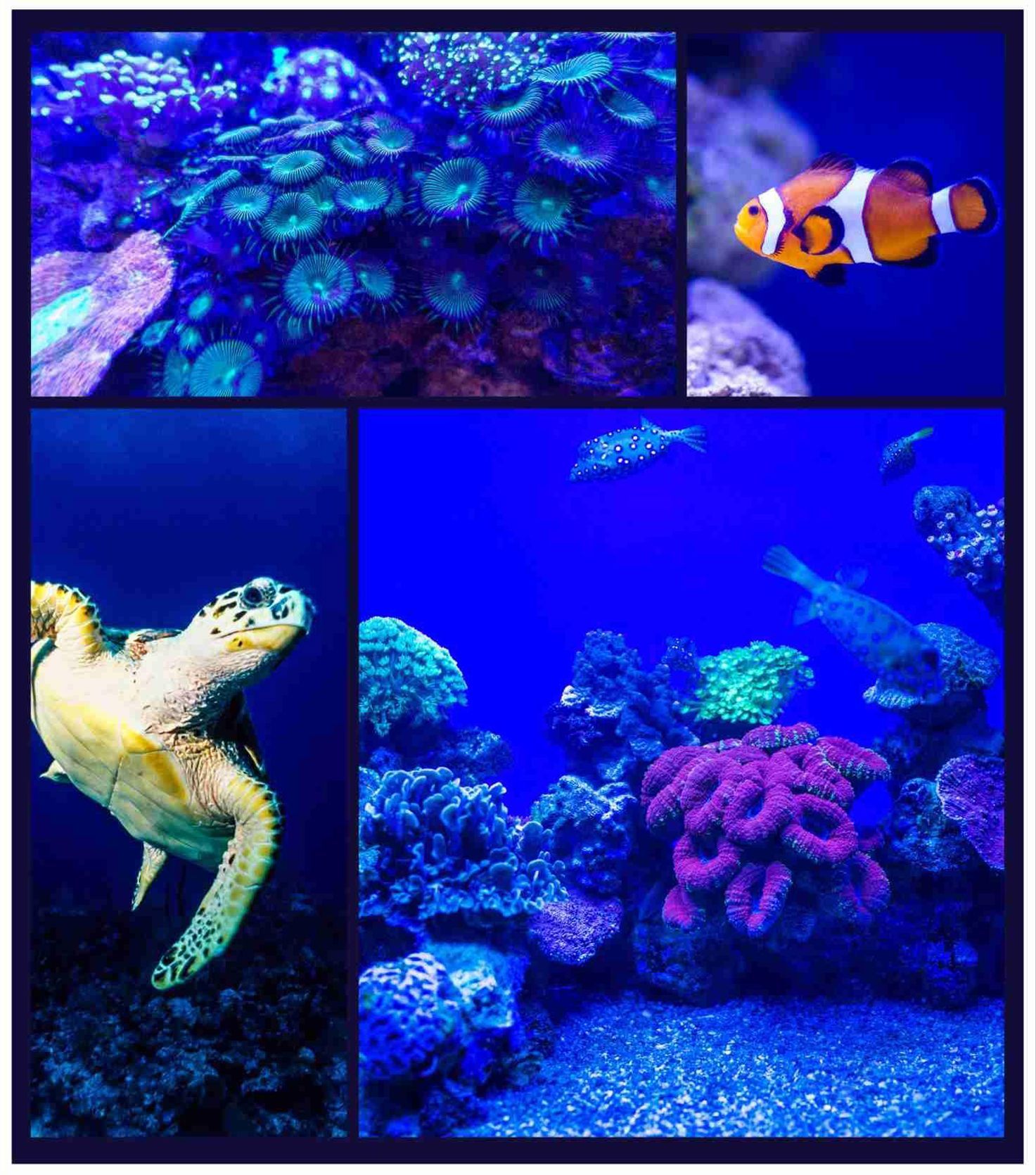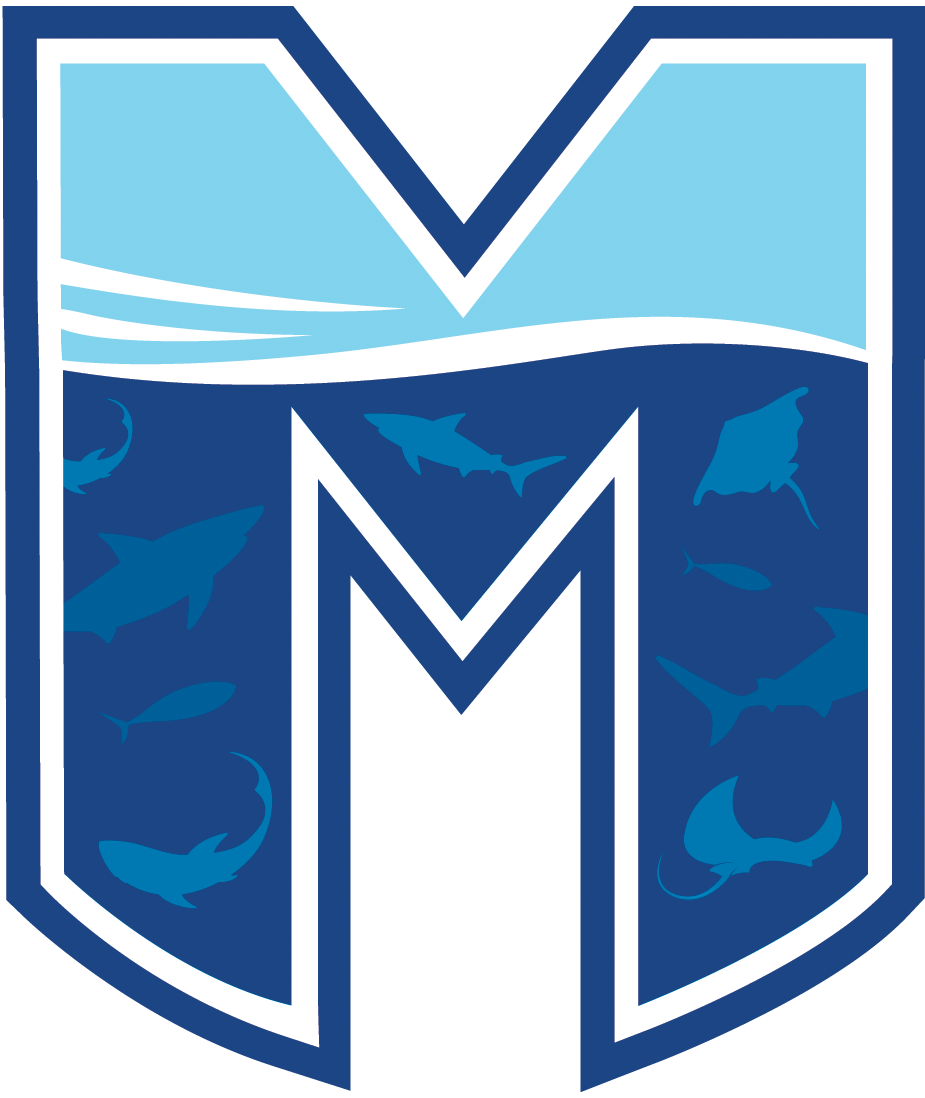Rigorous Academic Programs in Marine Biology
At Moore Marine College, we offer three different degree programs for students. Each program includes opportunities for fieldwork, research projects, and hands-on learning inside and outside the classroom
B.S. in Marine Biology
The Bachelor’s of Science in Marine Biology provides students with the foundation to understand the various ecological roles of sea creatures. Students in this program learn about the biological principles of marine life and study marine-related issues. Learning takes place inside and outside of the classroom with various labs, research projects, and fieldwork throughout the semester. With the addition of the summer semester, most students can complete this degree in 3 years.
B.S. in Marine Conservation
In the Marine Conservation program, students will learn what is necessary for the long-term conservation and sustainability of marine life. The Bachelor’s of Science in Marine Conservation prepares students for employment in ocean conservation or for higher education in the field of biology. Most students in this program who participate in the summer semester can complete their degree in 3 years.
Program Objectives
- Acquire the understanding of the field, analytical methodologies and software tools required to efficiently generate usable research information that will be used for NGO´s, government entities and academics.
- Develop awareness of respect for the environment and a commitment to the social and scientific development of the sector.
- Able to apply knowledge and abilities to keep learning and adapting to new challenges for marine organisms and their relationship with humans.
- Provide students with a solid foundation in cutting-edge approaches for learning, including the different areas in marine biology.
- Develop problem-solving and decision-making skills and understanding of data mining, machine learning, visualization techniques, predictive modelling, and statistics, as well as other major technologies in data science and business analytics.
Program Length: 120 Semester Credits
Program Courses
Required Core Courses: delivered in person.
MBO 3000- Introduction to Marine Biology, 3 credits
MAR 3100- Marine Ecology, 3 credits
MBO 3200- Marine Ecosystems, 3 credits
MBO 3300- Ichthyology, 3 credits
MBO 3300L- Ichthyology Field Lab, 1 credit
MBO 3400- General Marine Botany, 3 credits
MBO 3500- General Marine Botany Lab, 1 credit
MAR 3600- Fisheries, 3 credits
MAR 3600L- Fisheries Field Lab, 1 credit
MAR 3700- GIS, 3 credits
MBO 3800- Marine Vertebrate, 3 credits
MBO 3800L- Marine Vertebrate Field Lab, 1 credit
MBO 3900- Marine Invertebrate, 3 credits
MBO 3900L- Marine Invertebrate Field Lab, 1 credit
MBO 4000- Scientific Communication, 3 credits
MBO 4100- Marine Mammals Biology, 3 credits
MBO 4200- Advanced of Marine Biology, 3 credits
MBO 4300- Genetics, 3 credits
MBO 4300L- Genetics Lab, 1 credit
MBO 4400- Biodiversity, 3 credits
MBO 4500- Oceanography, 3 credits
MBO 4500L- Oceanography Field Lab, 1 credit
MBO 4600- Elasmobiology, 3 credits
MBO 4600L- Elasmobiology Field Lab, 1 credit
MBO 4700- Coral Reefs, 3 credits
MBO 4800- R for Statistics, 3 credits
MBO 4900- Independent Research Project I, 2 credits
MBO 4950- Independent Research Project II, 2 credits
Total Core Courses Credits: 66 credits
Required General Education Courses: delivered on-line.
ENG 1000- English Composition, 3 credits
SPN 1000- Spanish, 3 credits
LAT 1000- Latin, 3 credits
ETH 1000- Ethics, 3 credits
MAT 1000- College Algebra, 3 credits
HUM 1000- Introduction to Humanities, 3 credits
PHL 1000- Introduction to Philosophy, 3 credits
PSY 1000- Introduction to Psychology, 3 credits
STA 1000- Statistics I: Statistical Methods, 3 credits
BIO 1000- General Biology I, 3 credits
BIO 2000- General Biology II, 3 credits
PYS 2100- Fundamental of Physics, 3 credits
CHM 2200- General Chemistry, 3 credits
CHM 2200L- General Chemistry Lab, 1 credit
CHM 2300- Organic Chemistry, 3 credits
CHM 2300L- Organic Chemistry Lab, 1 credit
CHM 2400- Biochemistry, 3 credits
CHM 2400L- Biochemistry Lab, 1 credit
BIO 2500- Microbiology, 3 credits
STA 2600- Statistic II, 3 credits
Total General Education Credits: 54 credits
Marine Biology, M.s.
Moore Marine College's Marine Biology master´s program seeks to prepare researchers with the cognitive,ethical, and communicative skills required for efficient performance in the global advancement of marine sciences and technology related to the area, as well as to sustainable development that acts as a viable and necessary management alternative, fulfilling a social role of vital importance to the communities. The labor field of the graduate extends to those state entities dedicated to ensuring the management and conservation of natural resources such as U.S. Forest Service, U.S. Fish and Wildlife Service, Departments of Environmental Protection and Agriculture, National Park Service, county, also public and private universities leading teaching and research processes in a different sector of marine sciences.
Upon completion of the program, a Master of Science in Marine Biology degree is awarded.
Program Objectives
- To educate highly qualified professionals to work in areas related to the understanding of the problems of marine biodiversity, and to contribute to the knowledge of the conservation and adequate use of marine resources, under the principles of environmental sustainability.
- Provide an integral vision of the functioning of marine biodiversity.
- Contribute updated and innovative methodological tools for the development of projects that promote the conservation and management of resources (biodiversity).
- Provide competencies and skills in the modeling, functioning, valuation and alternative use (conservation and management) of biodiversity.
- Develop skills for creative participation in multidisciplinary teams that make up research groups.
Program Length: 60 Semester Credits
Program Courses
Required Core Courses: delivered in person.
MSB 6000 - Marine Ecosystems, 3 credits
MSB 6001 - Scientific Communication, 3 credits
MSB 6002 - Advanced Marine Biology, 3 credits
MSB 6003 - Biodiversity, 3 credits
MSB 6004 - Ichthyology, 3 credits
MSB 6004L - Ichthyology Field Lab, 1 credit
MSB 6005 - Fisheries, 3 credits
MSB 6005L - Fisheries Field Lab, 1 credit
MSB 6006 - Oceanography, 3 credits
MSB 6007 - R for Statistics, 3 credits
MSB 6008 - Marine Conservation, 3 credits
MSB 6009 - Tropical Marine Biology, 3 credits
MSB 6100 - Marine Ecology, 3 credits
MSB 6200 - Thesis Seminar I, 1 credit
MSB 6300 - Thesis Seminar II, 1 credit
MSB 6400 - Thesis Seminar III, 1 credit
MSB 6500 - Thesis Seminar IV, 1 credit
MSB 6600 - Thesis Project I, 2 credits
MSB 6700 - Thesis Project II, 2 credits
MSB 6800 - Thesis Project III, 2 credits
MSB 6900 - Thesis Project IV, 2 credits
MSB 7000 - Capstone I, 2 credits
MSB 8000 - Capstone II, 2 credits
Total Core Courses Credits: 51 credits
Elective Courses (9 credits): delivered in person.
MSB 6011 - Reef Coral Biology, Ecology & Conservation,
3 credits
MSB 6012 - Stable Isotopes in Marine Ecology, 3 credits
MSB 6013 - Climate Change, 3 credits
MSB 6014 - Invasive Marine Species, 3 credits
MSB 6015 - Data Analysis, 3 credits
MSB 6016 - Marine Physiology, 3 credits
MSB 6017 - Anthropogenic Impacts in Marine
Total Elective Credits: 9 credits
Start earning your degree this fall. Apply today to get started!
Contact Info
2240 Belleair Rd, Suite 240 Clearwater, FL 33764
CIE License #12736
About
All Rights Reserved | Moore Marine College

